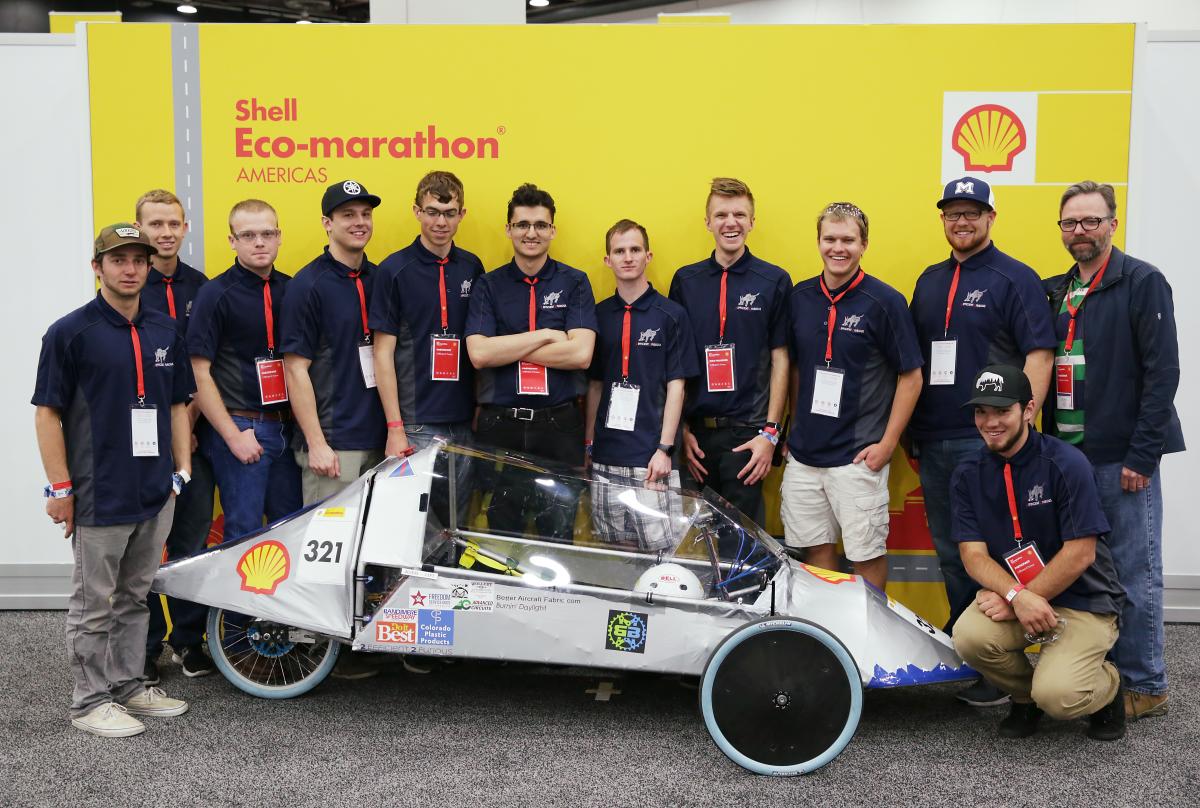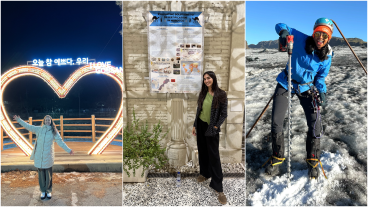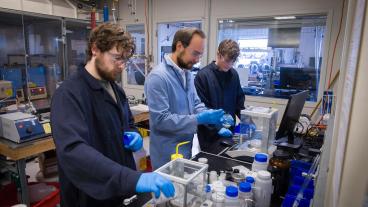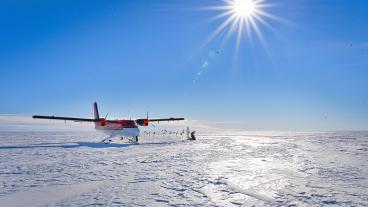A team of Colorado School of Mines seniors took part in the Shell Eco-marathon, a competition to design, build and drive energy-efficient vehicles, and came in seventh out of more than 25 teams in the battery-electric prototype division. The competition was held April 26 through 30 in Detroit, Mich.
The 11 students, which included four electrical engineering majors and seven mechanical engineering majors, participated in the competition as part of the College of Engineering and Computational Sciences Capstone Design Program. Team 2 Efficient 2 Furious worked together for the entire academic year to design and build a three-wheeled vehicle that runs on battery electric power, which they named Vin Electric, a play on the name of popular actor Vin Diesel. This is the first year Mines has competed in the battery-electric prototype division, which required students to bring together three separate engineering disciplines: mechanical, electric and computer science.
 |
| Team 2 Efficient 2 Furious competed in the Shell Eco-marathon, a competition to design, build and drive energy-efficient vehicles |
Teams drive their vehicles on a road course and they must complete 10 laps, totaling six miles, in under 24 minutes. Each team is judged by the amount of energy used and allowed six separate runs, with the run with the lowest energy use counting toward the final results.
Before they are allowed to race, each team must also pass a tech inspection that includes 10 different tests to ensure the car is roadworthy. The Mines team was one of the first teams to pass the tech inspection, while 10 other teams failed the inspection and were unable to race their vehicles on the track.
“We had a drop-dead date on construction in mid-March,” said team communications lead and mechanical engineering senior Zach Swanson. “This not only made sure that our vehicle was ready to go well before we arrived at the competition, but also gave us several weeks to practice driving.”
The team, which also developed an Android app that provided data on the vehicle and its energy usage during the race to both the driver and the engineering team, was able to communicate with the driver as he was racing and see their progress and results in real time.
“It was a bit like an F1 car, really,” said team mechanical lead and mechanical engineering senior Josh Wisda, who also drove the vehicle on its final run.
The team designed their vehicle entirely from scratch using mostly custom parts, impressing faculty advisor Bill Sekulic, adjunct faculty for the design program and an electrical engineer at National Renewable Energy Laboratory.
"I was really impressed by how close the team’s designs and completed vehicle were to each other,” said Sekulic. “They had to build a vehicle that would actually function, and everyone worked together really well as a team. I’m very proud of their success.”
“A lot of the teams that placed above us brought back vehicles they’d competed with before, or worked off of previous designs,” said Swanson. “For us, it was a much more valuable learning experience to build something from scratch. Designing a project from start to finish is something that will benefit us all greatly as we move forward in our careers.”
Contact:
Megan Hanson, Communications Manager, College of Applied Science and Engineering | 303-384-2358 | mhanson@mines.edu
Mark Ramirez, Managing Editor, Communications and Marketing | 303-273-3088 | ramirez@mines.edu



